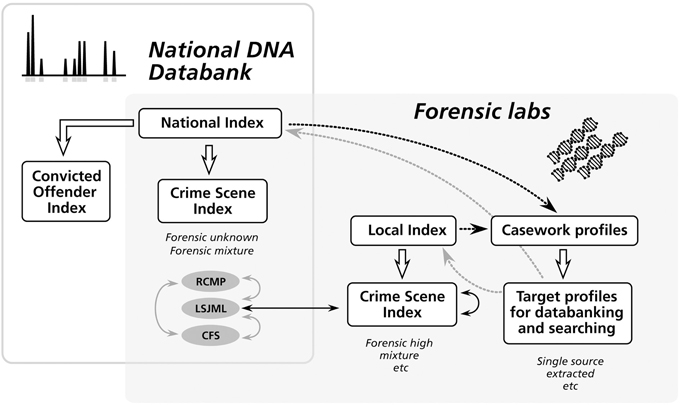In News:
- The Union Cabinet cleared the DNA Technology (Use and Application) Regulation Bill to regulate the use of DNA technology in the country.
- The clearance paves the way for its reintroduction in Parliament.
Background:
- The DNA Technology (Use and Application) Regulation Bill had earlier been passed by the Lok Sabha in January, 2019, but could not get the approval of Rajya Sabha.
- As a result, it lapsed once the tenure of the 16th Lok Sabha expired in May, 2019.
- Now the government is once again introducing the Bill in the Lok Sabha.
- The proposed law has been in the making since at least 2003.
- The 271st Report of the Law Commission of India titled “Human DNA Profiling” has also recommended a separate legislation to regulate the use of DNA testing.
The DNA Technology (Use and Application) Regulation Bill
Need for the Bill:
- The Bill seeks to create a regulatory framework for obtaining, storing and testing of DNA samples of human beings, mainly for the purposes of criminal investigations, and with the objective of establishing the identity of a person.
- DNA testing is already being used for a variety of purposes, such as criminal investigations, establishment of parentage, and search for missing people. However, DNA analysis offers substantial information which if misused or used improperly may cause serious harm to individuals and the society as a whole.
- The proposed law seeks to bring in a supervisory structure to oversee these practices, and frame guidelines and rules so that the DNA technology is not misused.
- To this end, the bill proposes to set up two institutional structures — a DNA regulatory board, and a DNA data bank — at the national level.
Key Provisions of the bill
- DNA Regulatory Board
-
- The bill provides for establishment of a DNA Regulatory Board.
- The board would frame the rules and guidelines for DNA collection, testing and storage.
- The Board would be the final authority to authorise the creation of State-level DNA databanks.
- The bill also seeks to regulate the quality of DNA laboratories by providing for mandatory accreditation and regulation of DNA laboratories. Testing of DNA samples can be carried out only at laboratories that are authorised to do so by the regulatory board.
- DNA Data Banks
-
- The bill provides for establishment of National and Regional DNA Data Banks.
- These data banks would be the repository of all DNA samples collected from various people under specified rules.
- The national and regional DNA data banks are required to store the information under one of the five indices:
-
- A crime scene index
- A suspect or undertrial index
- An offenders’ index
- A missing persons’ index
- An unknown deceased persons’ index
- Although information from DNA can yield a lot of information about the person, the data banks are supposed to store only that information that is necessary to establish the identity of the person.
- Permission for DNA Profiling:
-
- While preparing a DNA profile, bodily substances of persons may be collected by the investigating authorities.
- Authorities are required to obtain consent for collection in certain situations.
-
- For arrested persons, authorities are required to obtain consent if the offence carries a punishment of up to seven years.
- If the offence carries more than seven years of imprisonment or death, consent is not required.
- Further, if the person is a victim, or relative of a missing person, or a minor or disabled person, the authority is required to obtain the consent of such victim, or relative, or parent or guardian of the minor or disabled person.
- If consent is not given in either case, the authorities can approach the Magistrate.
- People whose DNA samples have been collected, either from the crime scene, or through voluntary written consent, can also request the removal of their information from the index.
- Use of DNA Data:
-
- Under the Bill, DNA testing is allowed only in respect of matters listed in the schedule to the Bill (such as, for offences under the Indian Penal Code, 1860, for paternity suits, or to identify abandoned children).
- Offences:
-
- The Bill specifies penalties for various offences, including: (i) for disclosure of DNA information, or (ii) using DNA sample without authorization. For instance, disclosure of DNA information will be punishable with imprisonment of up to three years and fine of up to one lakh rupees.

Advantages of DNA testing:
- It helps establish beyond doubt the biological identity of an individual.
- Also it helps beyond doubt to determine whether there is any biological relationship between two persons.
- The retention of DNA profiles in a database will help apprehend repeat offenders.
- The bill is in line with similar practices in the developed countries.
- The reliability of DNA for identification is likely to help an increase conviction rate which at present is only around 30% in cases of murder, rape or human trafficking, among other crimes involving the human body.
